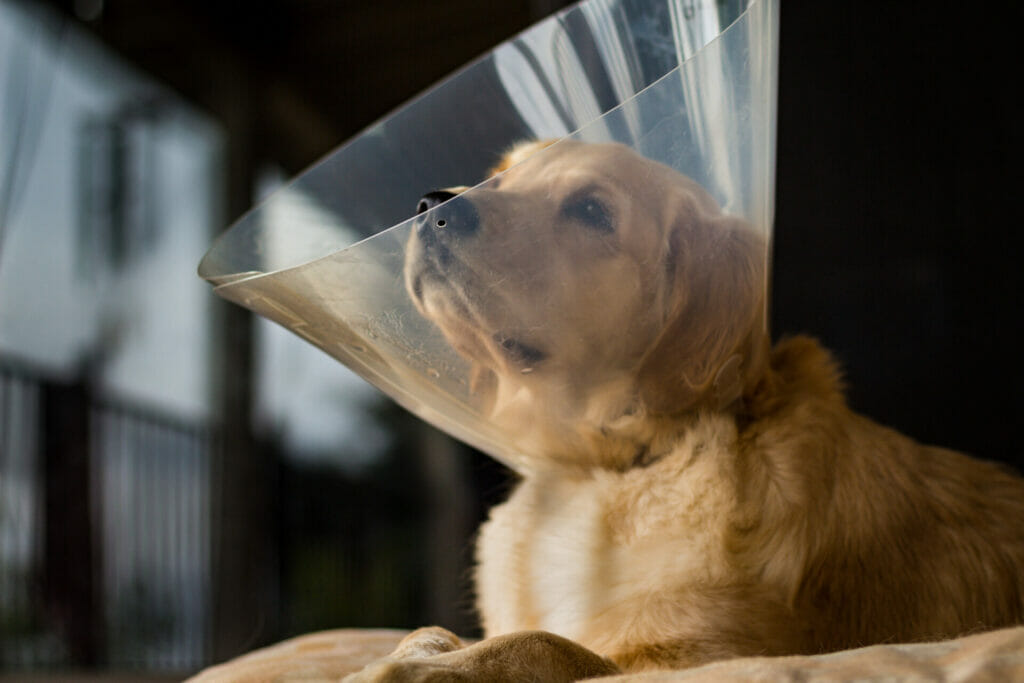We often hear the terms of spay and neuter and as pet parents there is the general understanding that it prevents our pups from having puppies but there are other factors to know about! We sat down with resident Veterinarian, Dr. Stephanie Liff to discuss Spaying and Neutering, what to know pre and post operation, and everything important in order to make an informed decision about whether you will get your pup spayed / neutered or not.
What is the difference between spay and neuter?
Neutering is a gender neutral term (altered is another gender neutral term to use), whereas spaying refers to an ovariohysterectomy. It is important to know that the vet doesn’t have to take the uterus to complete the spay but they must take out the ovaries for it to be considered successful. In male neutering the vet is removing testicles.

Why should I / shouldn’t I get my dog spayed or neutered?
Oftentimes the commonly held belief is that spaying and neutering is just about stopping dogs from having puppies but that’s not completely the case. While that is indeed a crucial part, particularly to reduce the pet homeless around the country, there are other health and behavioral aspects to take into consideration. In most cities, you are not able to bring your dog to a pet daycare, breeder, or other social place if they are not fixed, which can be detrimental to your pup’s social skills.

What are some of the medical benefits of spaying / neutering?
Female dogs have 2 risk factors which make spaying significantly more beneficial than choosing to not spay. The most important one is pyometra, or infection of the uterus which can be life threatening. This risk goes away with spayed dogs. Another factor is the decreased risk of cancer in female dogs with spaying. There is an increased risk in mammary cancer for non spayed dogs where about 50% of the tumors found are malignant, so a greater increase in risk of death. There isn’t much specific literature on the benefits of keeping females intact if you aren’t breeding them and the risk of pyometra far outweighs any benefits. For males, they don’t have breast cancer or pyometra risks so there are both positive and negative effects to neutering. The risk of getting BPH is lower if they are neutered but there’s a slightly increased risk of prostate cancer if neutered too early. Nevertheless the risk does not outweigh the benefits.
Are there behavioral benefits to spaying / neutering?
Yes definitely– intact males can have more aggression, and intact females can be more erratic and when they are cycling will attract attention and aggression from other dogs. Additionally, intact females will bleed for 3 weeks which can be a cleanliness issue in a house often requiring them to wear a diaper. One negative medical behavior if you spay to early young age is that your pup can develop incontinence due to low estrogen levels but this is not super common and treatable with estrogen pills.

What are some pre and post operation tips for spay and neuter?
It is important to get all your questions answered before the operation. Additionally it can be helpful to bathe and get your pup groomed before surgery because they can’t have a bath for 10-14 days afterwards. Make sure your vet does pre-op bloodwork to make sure there are not underlying conditions and post-op, preventing your pup from getting access to the incision is crucial. They will damage themselves so using a cone or plastic e collar is key.
What else should pet parents know about spay and neuter?
Even though spaying and neutering is a routine procedure, it is still surgery. While completely safe, vets are not taking it lightly and there is always a chance of complications.
When should your pup get spayed and neutered?
Generally between 6-8 months though it varies by breed and size. Larger dogs may weight to reduce the risk of cancer but for female dogs it is often before the first heat cycle (which is by 8-12 months of age.
It’s always important to get all the information in order to make an informed decision. So if you are unsure what is best for your pup, reach out to your vet to learn more. If you have any other questions about spay and neuter make sure to talk to your vet.




















